Cashflow: How I Wrecked My Business, Screwed My Friends, and Almost Destroyed My Marriage – Part 1
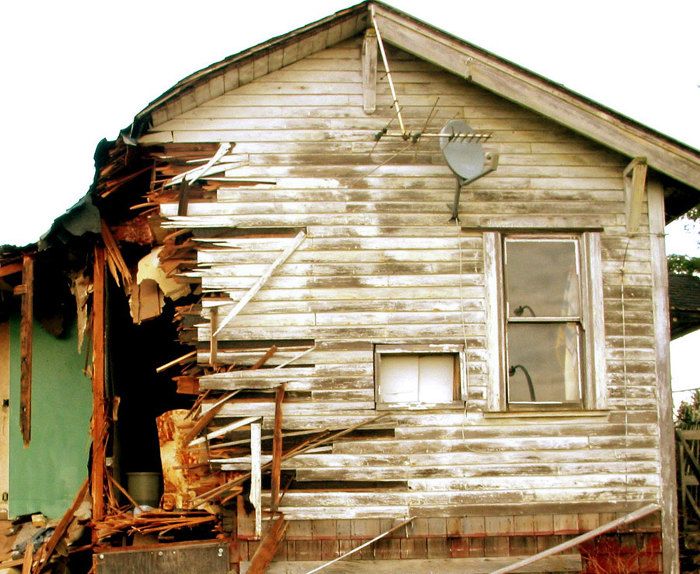
BY MR. X
A former home builder admits that blaming the recession for his company’s failure would be easy, but looking hard at his own mistakes is a lot more useful
Starting out with the best of intentions
I started my home-building business after burning out as a high-school science teacher. My goals were simple: start a small residential contracting business dedicated to great design, quality construction and green building. My wife was incredibly supportive, yet understandably nervous. Nevertheless she did not, nor has ever, faltered.
RELATED ARTICLES
Change orders can help avoid dreaded lawsuits
20 considerations that help a project run smoothly
The business case for ‘smaller is better’
Being a virginal builder, I couldn’t convince any sane individual to contract with me to build their home, and I didn’t want to build for insane people. My wife and I stretched out on a limb a bit and decided to build a home, my first build, for us. Our plan was to live in the home for a few years, establish the construction company and see what happened. On this first home, I touched every stick and brick myself. And that house was the first in our state to be recognized by a regional green-building certification program. It was a “right time, right place” scenario, and as a result the house garnered a fair amount of media attention and generated interest in our company.
I resisted taking on employees because I really didn’t want to be responsible for other people’s livelihood. But thanks to the publicity, the demand for my company’s services was such that I had no choice. I could no longer be effective without help, so I hired a couple of folks, including the man who would become our general manager. But I stayed awake nights worrying about having enough work and about missing paydays.
My wife and I moved into that first house, and within a year were presented with an offer to sell. The potential buyers had been living in an older home and worried about exposing their child to lead paint. They wanted to build or buy a green home, and I offhandedly suggested they take a look at our place. The deal was done very quickly. The buyers were sold immediately, grew a family in the home and still live there to this day. Since we didn’t even have to list the house on the real estate market, and sold the home for a profit, I realized the potential power of spec building.
Even though that first house wasn’t technically a spec house, it worked out that way, and I was immediately addicted to building spec rather than custom homes. I knew how I wanted our homes to look and how I wanted them to perform. I didn’t want to concede to a client’s agenda. I felt like I could sell any home as rapidly as I could get it built, and that’s what we did for next few years. Up until 2008, we sold every home within two weeks of completion.
Initially making money was not one of my goals. All I wanted was a decent salary for me and for my employees. At that point, being such a small company, We were a very tight knit group. Employees became fast friends with similar goals and motives. We wanted to grow, be the best and save the planet all at the same time. I didn’t care about big profits. As it turned out, this was one of my biggest mistakes.
[[[PAGE]]]
From builder to developer
For the next four years, our company continued to build and sell spec homes, at the rate of 2-3 per year. We also built a few customs and tackled the occasional renovation project. In 2007, I took on my first partner. My good friend and freshmen college roommate bought shares in the company and took over our sales and marketing. At this point we had four or five projects going at once and over a dozen employees. My old friendship with my new business partner grew stronger and our families became very close. My wife and I had our first child during this period as well which added to a euphoric state of mind. I think I actually, and embarrassingly developed a sense of invincibility. We were having a great time. Homes were selling, the media was calling, and leads were coming in.
Our city was getting a lot of national media attention. The city hadn’t seen the huge up tick in home prices that some of the coastal areas had, but over the last 15 years, real estate prices steadily grew to some of the highest in the state. That coupled with the momentum of people immigrating to town added to our confidence. We believed the Chamber of Commerce and media as they were hyping our city’s strength and growth potential as well. We were in exactly the right place, in the right business, at the right time.
Life was good. My wife began selling our houses, bolstering our ability to garner more income. There was an amazing comforting and motivating consistency that was a threaded theme throughout this phase of my life: my marriage. My wife and I have grown closer with every stage of our relationship. We didn’t listen to the naysayers, the nagging nettles that say that marriage is hard and no fun. We started our relationship with transparency, mutual respect and fervor for effective communication. We were getting even better at that during this phase of the business. I felt that I was building a company that could be a legacy–one of those folkloric, idealistic companies that I could pass on to the future generations of our family if they wanted it. Family was a motivator and a reason to do good work.
I felt that the addition of my good friend of many years would add to that motivation. In retrospect, I was naively Utopian in my thinking. If I had a dollar for every time that I heard that going in to your business with a friend was a bad idea…. I couldn’t, or refused, to think that the partnership could be anything but a great thing. Our two families worked together, ate together, played together and grew our families together. With the oncoming storm, all of the relationships in my life were about to be taxed and stressed. Only time could reveal how far that tension could stretch before snapping.
[[[PAGE]]]
Early in 2007 I received a call from the CEO of a company that manufactured prefab housing. They were interested in partnering with us. This fairly liquid company wanted to invest in property and develop green homes. We had the building knowledge and a good reputation, but no cash. A partnership looked like a great way to gain some business acumen, pay off some of our debts, and get some working capital. So we made a deal, and I now had my second partner. The contract we signed, a shareholder’s agreement, established their partial ownership of our company, however, it did not clarify anyone’s specific responsibilities—another big mistake.
The partnership really marked our company’s switch from builder to developer and began a serious ramp-up process. Our corporate partner’s balance sheet allowed us to borrow more money from the banks, so we bought land and started a small, nine-lot subdivision. Something that I couldn’t pull into focus and be cognizant of at that time was what it truly meant to have business partners. It seemed that we were all heading toward fulfilling the same goals and had similar enough motivations to enjoy the journey, but again, I had on some utopian blinders.
During the same timeframe, a giant wave was forming in the country’s economy. The energy behind that wave had been swelling for years, but like nearly everyone else, we just ignored it. We felt invincible, seduced by the possibility of what our company could become. This is specific to my situation and not a generalization, but it seems like that during heady times in bull markets that fundamental and philosophical differences are easier to ignore. So what if my college buddy was more interested in selling and marketing than the tenants of green building and conservation. Big deal if our corporate partner looked at the business from a corporate standpoint. That’s what makes for healthy balance sheets, right? These differences were easy to justify when homes were selling. It would become increasingly blatant to me that hard times increase erosion rates between our philosophical differences. The economic shit storm worked just like torrents dropping on barren soil. The stress would end up carving a deep and wide canyon between the three business partners. Look, my glass is half full and I like aligning my work with my philosophical ideals.
National media promised major marketing
In 2008 the producers of the television show Extreme Makeover: Home Edition contacted our new partner about building a home in New Orleans. Since our company would share the proverbial spotlight, this seemed like a phenomenal marketing opportunity. We made several planning trips to New Orleans. And among other things, I got the USGBC involved and convinced the project team to register with the LEED for Homes rating system. USGBC saw the marketing opportunity. They sent a great support team to the build to expedite the certification process. The president of the USGBC came down to New Orleans and I toured him around the completed project. They also created a project profile for the home and pushed that on their website.
The travel was a bit tough at first for our family, but we saw this as an incredible opportunity and great investment for our business future. At the transition between the winter and spring of 2008, my wife and I found out that we were expecting our second child. Both of our kids were planned, but that doesn’t necessarily mute the concerns and pending responsibility of having children.
In keeping with the show’s tradition, the house was completed in only five days, and new to the show, received a Platinum certification. In fact, it was the first LEED certified home in Louisiana, and one of only 10 Platinum homes in the country at that time. But for a lot of reasons, the marketing spotlight never focused on us. We were just part of the team overseeing the green strategies. All of the time, effort and money we donated turned out for naught.
[[[PAGE]]]
Around the same time, our company was also approached about building a Southern Living Idea House just outside of town. This project would be featured in the magazine with an associated summer tour that, we were told, would bring in ten to twenty thousand people. Readership for the Idea House issue was supposedly 16 million. Once again, the marketing potential seemed too great to pass up.
We were forced to create a budget for the project before the plans were complete. Then, we discovered a spring under the detached garage that required additional engineering and work on our end. Sponsors were specifying products as we built, and some even charged us for materials we thought were going to be donated. The charges were discounted, but unexpected nonetheless. We were over budget and behind, but we were also under the gun and risked ruining our reputation if we didn’t deliver a great house on time.
This was a pivotal time for us. We had huge PR opportunities and wanted to be ready for the inevitable (we thought) demand for information about our company. We believed that the combination of magazine and TV coverage would result in major web traffic and call volume. We wanted to have marketing materials in place and a web site and server setup to handle the traffic. We saw this time as our chance to make it big.
When it aired, I couldn’t wait to see this behemoth TV show purport the efforts of the build team and the green achievements of the home. For whatever editing, corporate, or production reason, the green accomplishments weren’t covered in the episode. The sustainable attributes of the project were boiled down to a sentence about the pervious pavers in the driveway. This house used 50% less power than an equivalent home built to the International Energy Conservation Code. It had great systems, a kicking envelope, sealed crawl with breakaway flood doors, etc, etc, etc. I was very disappointed, but learned some very important lessons. It was obvious to me that I couldn’t assume that talk and execution are exclusive. I also learned that it is very challenging to align differing philosophies, no matter how much I wanted to. The most important lesson that I learned during this time was really a reinforcement: for me, family is paramount. It is why I am who I am and ultimately why I do what I do. I have a wonderful and powerful relationship with my wife, and I was developing an incredible powerful relationship with this new human that was part her, part me, and all her own person. I had a new best friend and another one on the way. I felt an undeniable urgency to get my shit together.
Unfortunately, the country’s economic degradation paralleled the construction of these two homes. As we built, the economy crumbled. I’m not sure if it was naiveté, arrogance, or what that kept me from paying closer attention. When I finally realized what was going on, it was too late.
Coming soon: “How I Wrecked My Construction Business, Part 2”, which includes a concise collection of business lessons the author learned the hard way (so you don’t have to).
Fine Homebuilding Recommended Products
Fine Homebuilding receives a commission for items purchased through links on this site, including Amazon Associates and other affiliate advertising programs.

Handy Heat Gun

8067 All-Weather Flashing Tape

Affordable IR Camera
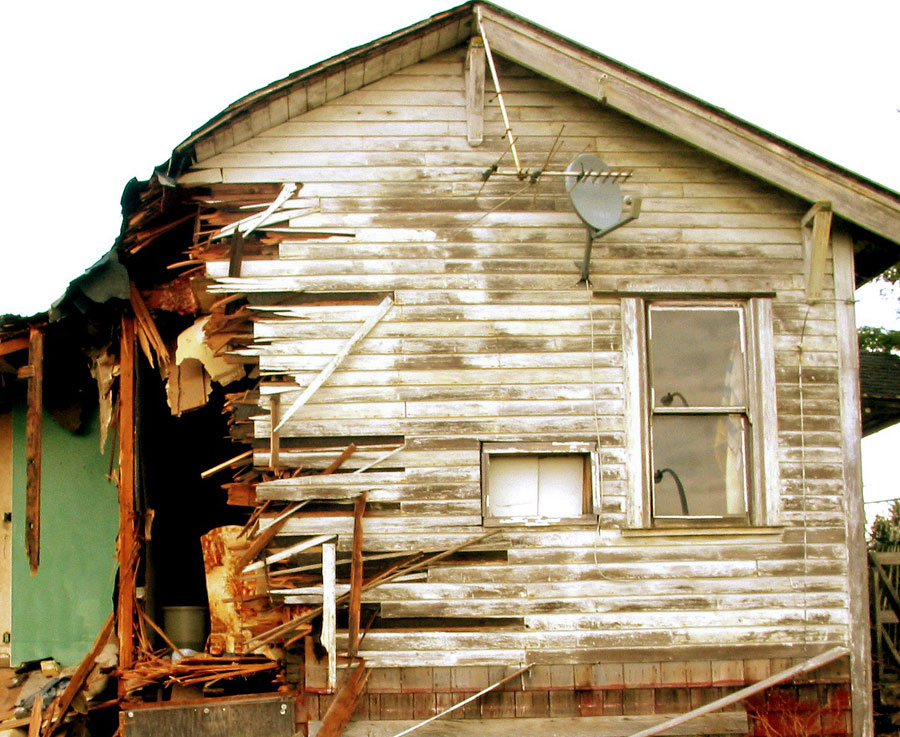
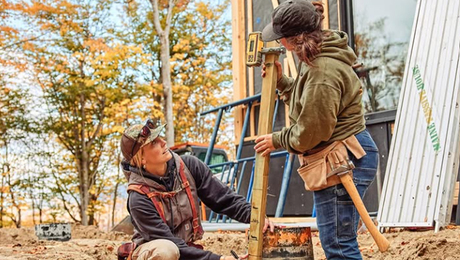


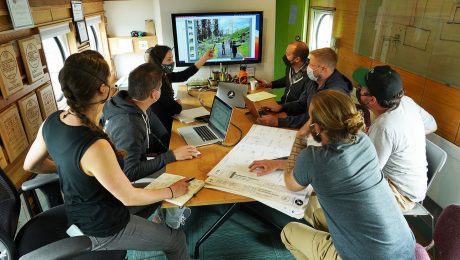





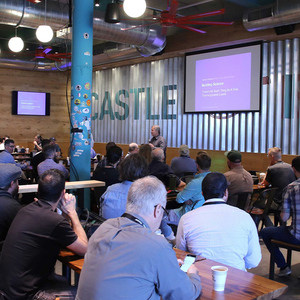

















View Comments
An important article about life's lessons. My take-away so far is this: If you want a particular outcome, you have to have the authority/power/influence to make that happen. If someone else is in charge - a director or producer or show host - you will get what they want or need in the end product. Your values are YOUR values, not someone else's values or objectives.
Friendships can be a powerful source of assistance. But when they go sour, those friends can become powerful enemies as they have intimate knowledge of background information and an axe to grind.
Excellent article. Appreciate the honesty and the insight and look forward to the next installment.
Thanks for writing this. I am a lawyer turned builder and hope to learn some lessons from you.
I feel for you brother! Im coming out the otherside of a 3 year partnership myself. its cost me my best friend, a great deal of time, and money. Greed, and Pride,gets in the way and effects dicission making. we where a Christian based business and we lost focus of that.nothing else mattered but bottomlines and speadsheets. once we lost focus on God, it complete fell apart. thank you for shearing your story. God Bless you and your Family!
I sincerely hope the comments don't go south into politics and religion again, at least until the story is done. This is about business,... Sharing real life lessons among the creative and ambitious is a great value for all of us whom I believe to be hardworking achievers here first, not religious, political, nor special interest zealots, no matter how sincere. Let's keep that to our own individual kitchen tables I'm an atheist and would counter with no disrespect that, I don't believe that Jesus, nor Obama, nor Bachmann, have anything to do with this. Let's all follow the writer on this journey he is generous enough to share with us. My sense is the education factor will be of great value. There is if you look closely a vast network this site provides as indicated by the "v" on it's side for anyone of any persuasion to share this media with their particular outlet of persuasion without polluting finehomebuilding with crappy personal persuasion ear-marks. Let's simply listen and be grateful for the story which I believe is, so far, in it's depth, candor, and presumable motivation, far braver and personally revealing than most all of us have so far stepped up to offering for the collective benefit of us all.
I am enjoying the article, and hope the next segment is available soon (hopefully sooner than the next magazine?!).
@OhMisha, mrsalty just seems to be echoing the article about what happens when focus gets lost. His comments weren't out of place. Something that was an eye-opener for me: realizing atheism is a religion just like the others. The same passion exists to evangelize, gain majority, etc. If you've got a comment about what happened to a partnership between you and a few other atheists, the good and the bad, post it! I suspect we'd all be glad to read it. Too bad we can't exchange handshakes instead of comments. It would probably remove most of the stress/imagined aggression.
I'm just getting started in this field, and am avidly taking notes about dos/don'ts from the article. Very interesting about the TV show. I liked WestSeattleSteve's comments about that - ditto. No control = no control. Huge pile of suck after all that work.
Lessons I've already learned personally:
The better you know someone, the more you need everything in writing.
If they're family, you'd better not just have it in writing, but notarized and possibly blood drops on the paper. heh.
But I know those things are just the beginning. I thank the author for taking the time to write down his slice of experiences.
This is the real Mr. X. I can't convey how helpful writing this article was for me. It felt so good to organize my thoughts and log what happened at one of the most incredible times of my life. It was cathartic, healing and therapeutic to say the least. I mean, we all have life experiences, but in this fast-paced life, we rarely have time to compute what the hell is going on to us and around us. I'd encourage those with similar experiences to WRITE IT DOWN! Get it out of you, so that you can move on. It helps emotionally and physiologically. I have a stronger family, marriage, career and character because of my experiences, strengthened by the writing process. The biggest gains that I have achieved through this is a healthy dose of humility and reorganization of my priorities both personally and professionally.
A HUGE thanks to the incredibly professional, human and compassionate editors at Fine Homebuilding (Kevin Ireton and Dan Morrison) that helped to pull this out of me. They actually made me sound like a good writer! I really don't like writing very much. It takes too long.
Thanks also for all of your comments here. I was feeling a generous amount of trepidation about putting all of this out here in the public, but the reader comments have made the process all that more incredible. There was not a solitary motivator for writing this story. Yes, I wanted to tell about what happened to me, but I also wanted to let others know that everything can be ok, that we can go through some of the darkest periods of our lives and careers and come out better for it on the other side.
I can't wait to hear what others might write.